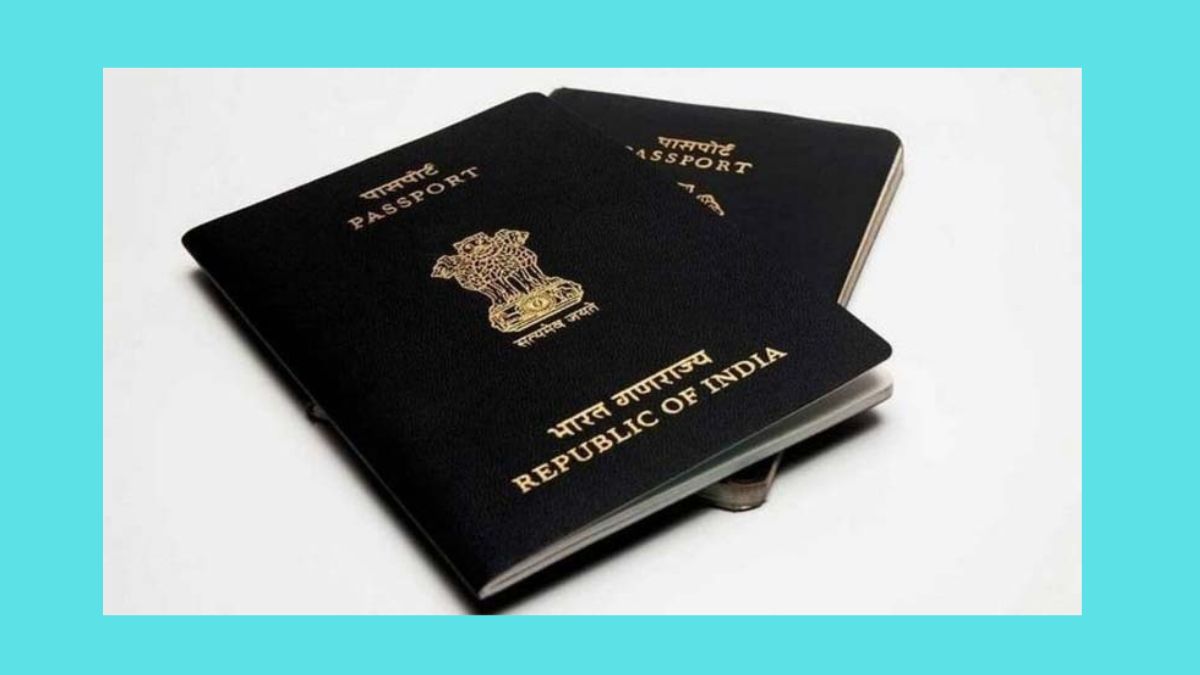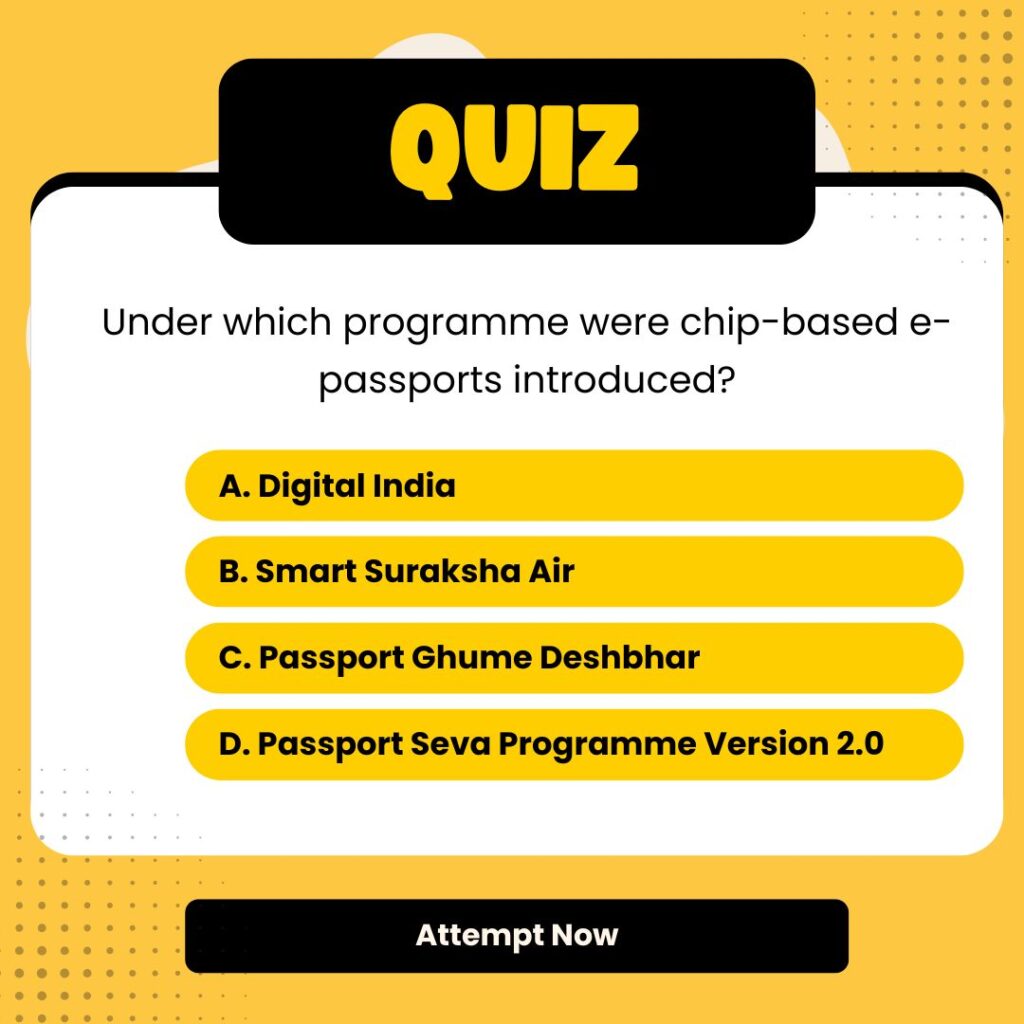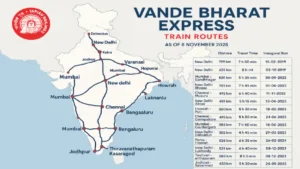India has officially rolled out chip-based e-passports as part of its ongoing digital transformation of travel documentation. These new passports, embedded with RFID chips and biometric data, aim to enhance the security, efficiency, and convenience of international travel for Indian citizens. The move places India alongside countries like the USA, UK, and Germany, which already use advanced e-passport technology.
Why in News?
The Government of India, under the Passport Seva Programme Version 2.0, began the nationwide rollout of chip-based e-passports on April 1, 2024. This initiative marks a significant step toward modernizing travel infrastructure and ensuring secure and tamper-proof documentation for Indian citizens. It also coincides with the implementation of new passport rules in 2025.
Key Features of Chip-Based E-Passports
- Embedded RFID Chip & Antenna: Stores biometric and personal data securely.
- Enhanced Security: Difficult to forge or duplicate.
- Scannable Barcode: For digital access to residential addresses by immigration officers.
Objectives
- Improve passport security and global compatibility.
- Streamline immigration processes and reduce fraud.
- Support digital India and paperless governance goals.
Implementation and Rollout
- Pilot Launch: April 1, 2024.
- Cities Currently Issuing E-Passports: Chennai, Jaipur, Hyderabad, Nagpur, Amritsar, Goa, Raipur, Surat, Ranchi, Bhubaneswar, Jammu, and Shimla.
- Issued through selected Regional Passport Offices (RPOs).
New Passport Rules (2025)
- Birth Certificate Mandatory: For those born on or after October 1, 2023.
- Residential Address Digitally Embedded: No longer printed on the last page.
- Parents’ Names Removed: Personal data now streamlined to only essential information.
Significance
- Aligns with global best practices.
- Supports paperless immigration and data privacy.
- Represents India’s commitment to tech-based governance.
| Summary/Static | Details |
| Why in the news? | India Launches Chip-Based E-Passports to Enhance Travel Security |
| Rollout Date | April 1, 2024 (pilot under Passport Seva 2.0) |
| Technology Used | RFID chip with biometric data storage |
| Issuing Cities | Chennai, Jaipur, Hyderabad, Goa, Jammu, etc. |
| Key Benefits | Security, global compatibility, paperless processing |
| New Rules for 2025 | Birth certificate mandatory, no printed address or parents’ names |
| Alignment | With global standards (USA, UK, Germany) |










 Historic Move: Karnataka Becomes India’s...
Historic Move: Karnataka Becomes India’s...
 India Gears Up for 2026 Tiger Census: Wo...
India Gears Up for 2026 Tiger Census: Wo...
 List of Vande Bharat Express Routes in I...
List of Vande Bharat Express Routes in I...







